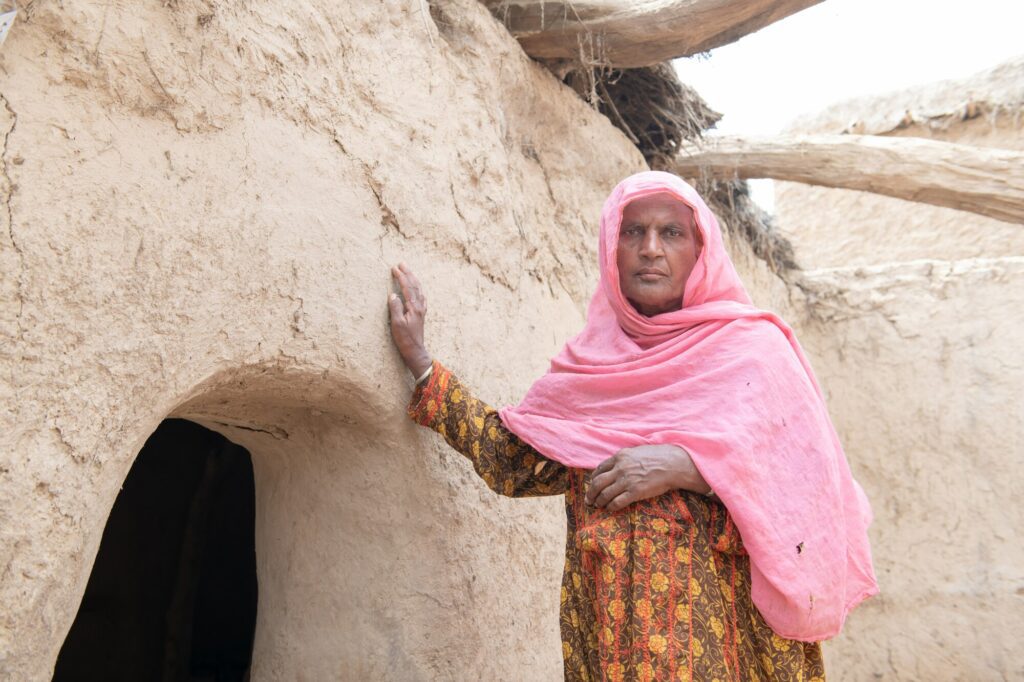A new survey on the impact of the floods in Pakistan on older people reveals that hundreds of lives are needlessly being put at risk due to the decimation of health services and the rise of diseases like malaria and diarrhea, which can be fatal to older people with weaker immune systems.
The survey from HelpAge International highlighted that 87% of older people in flood-affected areas of Pakistan have a health condition, but only 51% have access to health care, while government and UN assessment reports are largely ignoring their needs and rights.
“So many older people with serious health conditions lost their medication in the floods. The health centers were either swept away or destroyed, along with the contents. And many older people cannot reach the health centers that are functioning and even if they can, they cannot afford to buy the medication they need. Tragically, hundreds of older people will die because of this,” says Syed Moeez, HelpAge Pakistan country director.
More than 1,500 health and support facilities have been badly damaged by the floods.
Of the older people interviewed who have access to health services, more than half said they were too expensive and over a third said that they do not have sufficient medical supplies. Only basic healthcare centers or private clinics are available to most people, and these fail to meet the needs of those most at risk.

Water-borne diseases
Already at risk of chronic diseases and with aging immune systems, older people in Pakistan are finding it harder to fight against water-borne diseases, such as malaria. These are increasing as a result of the now stagnant water and mosquitoes, especially in Sindh province where 85% of those surveyed by HelpAge have no shelter.
“It’s heartbreaking to see vulnerable older people sleeping in the open air, right next to stagnant waters, a breeding ground for malaria-carrying mosquitoes as well as multiple waterborne diseases. It is vital that they have nutritious food and clean water to help them fight these diseases,”
said Syed Moeez.
In Sindh, 78% of people over 50 surveyed do not have enough food and 59% have no access to clean drinking water. Older people are also struggling to reach toilets (63%) and bathing facilities (62%).
A third of interviewees have at least one disability and two-thirds said they were unable to reach aid distribution points. So many have lost assistive devices, such as glasses, walking sticks, and frames, and have no money to buy new ones.
Loss of Income
A large number of older people were actively working before the floods, but now only 24% of those surveyed have an income. A worrying 61% of those who have been displaced have had to borrow money to get by. The survey shows that the highest safety concern mentioned by older men and women is financial abuse (38%) such as family members stealing from them.
Outside the public sector workforce, only 2.3 percent of older people in Pakistan receive a pension, so if they are not able to work, they are entirely dependent on aid or their families to survive.
Older people play a vital role in families in Pakistan. This becomes even more important in times of emergency when family members are displaced or migrate for work. But older people who are barely able to meet their own basic needs, are also caring for children, with 78% of those interviewed caring for three or more children. Unsurprisingly, many older people are experiencing severe anxiety.
“Older people who were weaker before the floods are now literally fighting for their lives,” said Syed Moeez. “And the ones who were active are now completely dependent on others. And this could get worse when winter arrives. We all have to do what we can to support them to live safely and with dignity and ensure they can participate and contribute as they wish, as equal and active members of society.”


